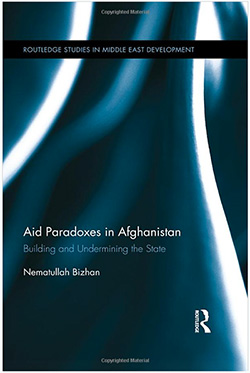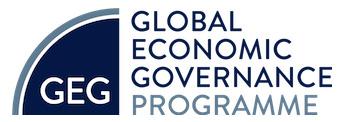Aid paradoxes in Afghanistan
Breadcrumb
17:45 - 17:45, 01 March 2018
Blavatnik School of Government, Radcliffe Observatory Quarter, Woodstock Road, Oxford, OX2 6GG

Author Dr Nematullah Bizhan discusses his new book, Aid Paradoxes in Afghanistan: Building and Undermining the State.
Jawed Ludin and Professor Stefan Dercon will be discussants and Calum Miller will moderate.
How do international assistance and intervention affect state building in situations of fragility? Author Nematullah Bizhan addresses this question by examining the case of Afghanistan post 9/11, a country which has been at the forefront of the Cold War and the “war on terror”. Although some of the problems that emerged in the state building process in Afghanistan were predictable as the country inherited unfavourable conditions, the types of interventions that occurred—including an aid architecture which largely bypassed the state, the subordination of state building to the war on terror, and the short horizon policy choices of donors and the Afghan government—reduced the effectiveness of the aid and undermined effective state building.
The book examines the dynamic and complex relations between the Afghan government and foreign donors in their efforts to rebuild state institutions. It explores three key areas: how donors supported government reforms to improve the taxation system, how government reorganised the state's fiscal management system, and how aid dependency and aid distribution outside the government budget affected interactions between state and society.
The book launch will be followed by a drinks reception.
The event is free and open to all.
The talk will be livestreamed and recorded on the Blavatnik School of Government YouTube channel.
Speaker bios
Dr Nematullah Bizhan is a Research Fellow at the Oxford University’s Blavatnik School of Government and a former Oxford-Princeton Global Leaders Fellow. He is also a Senior Research Associate at the Oxford University’s Global Economic Governance Program and a Visiting Fellow of Asia Pacific College of Diplomacy and Crawford School of Public Policy at the Australian National University. His research focuses on international development, state building and legitimacy in conflict-affected and fragile societies, public policy and political economy. Nematullah has contributed to post-2001 Afghanistan reconstruction. He has served as Afghanistan’s Youth Deputy Minister; Founding Director General for Policy and Monitoring of Afghanistan National Development Strategy; head of the Secretariat for the Joint Coordination and Monitoring Board; and Director General of Budget at the Ministry of Finance. He has a PhD in Political Science and International Relations from the Australian National University.
Mr Jawed Ludin is an Afghan entrepreneur. He was a former Presidential Chief of Staff (2005-2007) and Deputy Foreign Minister (2011-2013) in Afghanistan. His diplomatic experience includes serving as Afghanistan’s Ambassador for the Nordic Countries (2007-2009) and for Canada (2009-2011). Ludin has written on Afghanistan for UK-based publications, notably the Guardian, and is the co-author of a book on conflict management strategies ‘Working with Conflict’.
Professor Stefan Dercon is Professor of Economic Policy at the Blavatnik School of Government and the Economics Department and Director of the Centre for the Study of African Economies, University of Oxford. Since 2011 he has been Chief Economist of the Department of International Development (DFID), the government department in charge with the UK’s aid policy and spending. Stefan is a development economist applying microeconomics and statistics to problems of development. His interests are diverse, including research on risk and poverty, the foundations of growth in poor societies, agriculture and rural institutions, migration, political economy, childhood poverty, social and geographic mobility, micro-insurance, and measurement issues related to poverty and vulnerability.
 This event is co-hosted with the Global Economic Governance Programme.
This event is co-hosted with the Global Economic Governance Programme.
